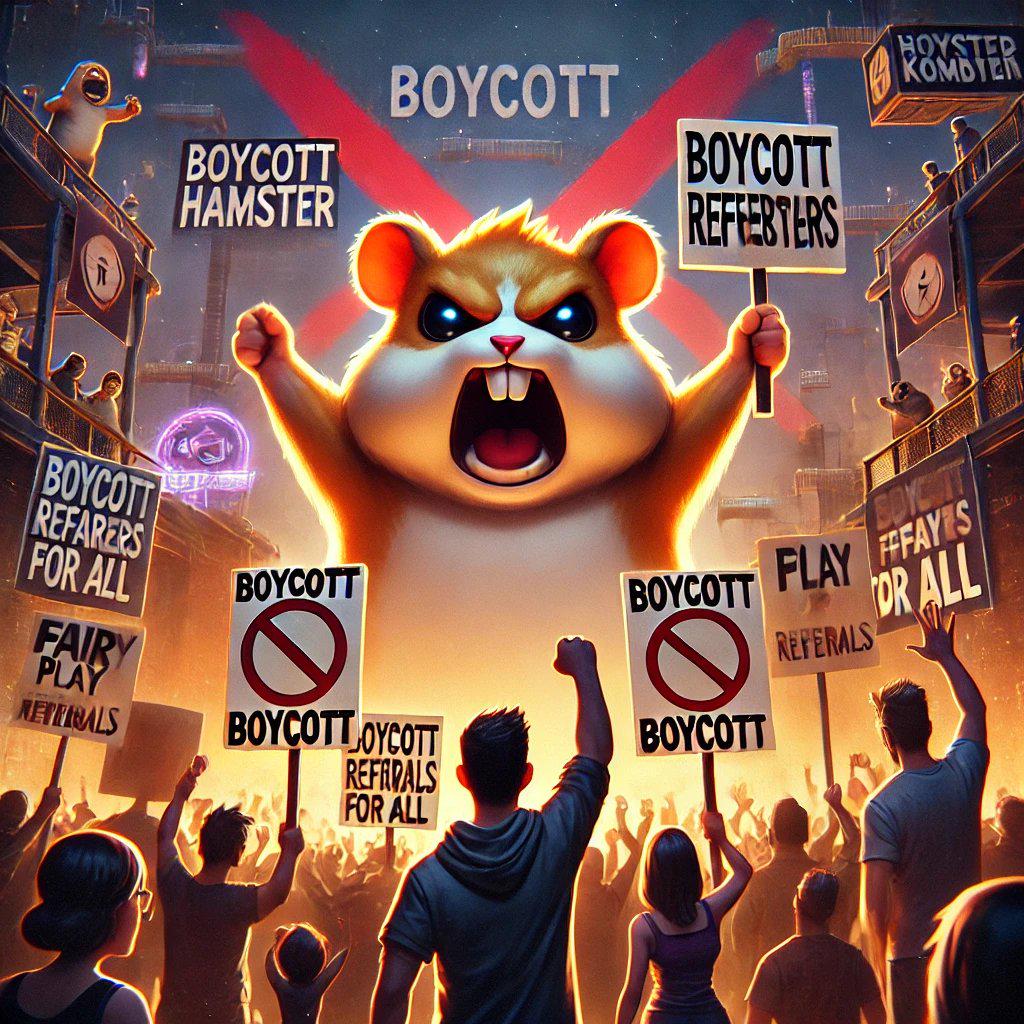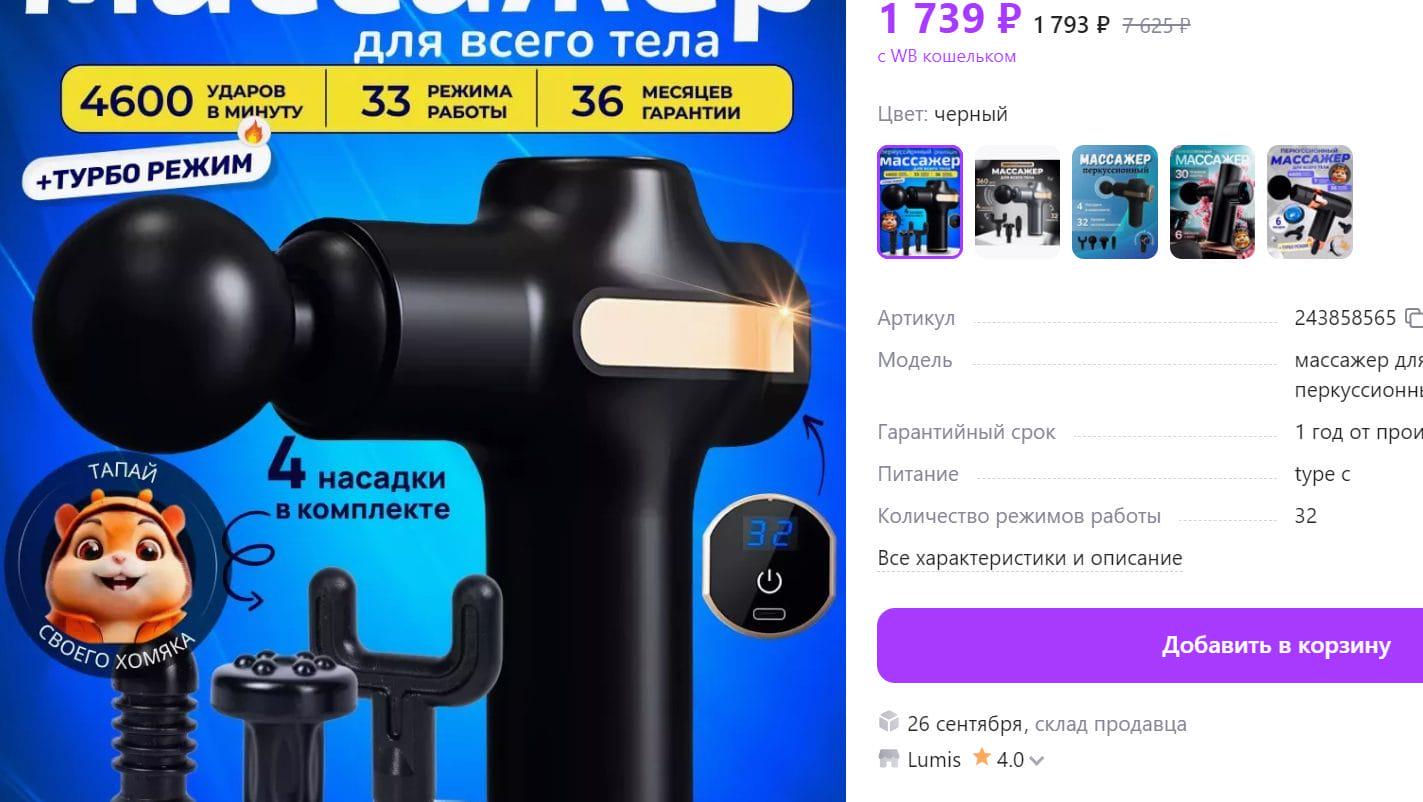Original Authors: Anna Kharton, Olivia Capozzalo
Translation: Zen, PANews
Whether you are a loyal player of "Hamster Kombat," a click-to-earn game based on Telegram, or completely indifferent to it, the heat surrounding this game has been real since its release this spring.
With the "Notcoin" shining in the front, most of the news about this game has shifted to the release and price prediction of its native token HMSTR since "Hamster Kombat" registered millions of accounts. Now, as the first season of the game since its launch in March comes to an end, players have begun to accuse the team of unfair treatment and false promises.
As of last weekend, as part of the game's promised reward system, the resources accumulated by players have been converted into HMSTR tokens, which are expected to be airdropped at the time of the TGE. The game team also revealed more information about token supply and distribution in a post on X platform. The team stated that out of the planned supply of 100 billion HMSTR tokens to be minted, 75% will be reserved for the community, and 60% of the tokens will be distributed to the game's users at the end of the first season.
According to the team's post on X platform, this "hamster math" is still ongoing: out of the 60% HMSTR token supply allocated to users, 88.75% will be distributed in this week's token airdrop and listing, while the remaining portion will be locked and can only be unlocked 10 months after the token is listed on the exchange. The team also promised to airdrop an additional 15% of 100 billion tokens during the upcoming second season of "Hamster Kombat."
According to the "Hamster Kombat" team's claims since March, the game has as many as 300 million users. Among these users, only about half, 131 million players, are eligible to receive token rewards in the highly anticipated airdrop, which is officially scheduled for September 26th. In addition, 2.3 million players have been identified as cheating users and are completely banned from participating in token distribution.

Disappointing Token Distribution
Since the "Hamster Kombat" team's announcement on Sunday, many users have expressed their dissatisfaction with the token distribution process and standards on X platform, believing that the amount of tokens they received is far lower than the time and effort they put into it.
The HMSTR tokens will be listed on exchanges for trading later this week after the airdrop, but several mainstream exchanges have already conducted spot and futures contract pre-market trading for HMSTR tokens. The price ranges from 0.01 USDT to 0.1 USDT on different platforms, leaving players confused about the actual value of the tokens they received.

Based on comments from the community, at the highest USDT price on various exchanges, the earnings from hundreds of hours of gameplay for regular users amount to less than $50.
A player named Timbo in the Telegram community stated that he had been playing the game almost from the beginning, spending about 4-5 hours playing the game every day for two months, and earned about 500 tokens. As the hype around the game and the upcoming token release continued to grow, more and more players were promised token distributions at launch. "As time went on, my interest gradually waned. The game itself wasn't that fun. As for potential earnings, I didn't expect too much— the number of players has become very large, and everyone needs to be rewarded," Timbo said.
Questioning the "Cheater" Determination
Another major wave of negative sentiment arose when "Hamster Kombat" announced the exclusion of 2.3 million players from token distribution. According to the project team, the ban was to address users who were alleged to have tried to obtain game profits through improper means, such as using multiple devices to click, playing from different accounts, or engaging in cheating through referrals, among other behaviors. The project team also cited examples: "One person connected over 400 accounts to the same Binance address, and another person invited nearly 2,000 'friends,' all of whom were flagged by our anti-cheating system."
However, some of the criteria for determining cheating seem to be quite controversial. One of the most shocking penalties is for purchasing keys. Keys are important game items introduced later, and they carry significant weight in the airdrop. In the game rules, users need to obtain keys by completing a mini-game, but some players choose to spend money to buy them directly, bypassing the mini-game. The "Hamster Kombat" game system allows users to purchase keys, and there were no warnings or explanations that this was considered a violation. However, this behavior was apparently deemed "cheating" in the airdrop and allegedly led to players being banned from receiving tokens.

Several members of the "Hamster Kombat" Telegram chat group posted a message, including the following statement:
"Some of my friends have done nothing wrong but were mistakenly listed as cheaters. This injustice seriously damages the community's trust and creates an atmosphere of distrust."
These players identified by the project team as violating the so-called "game rules" received a simple status at the end of the first season: "Cheating is bad." The "Hamster Kombat" Telegram group was immediately flooded with complaints, with many expressing dissatisfaction with the unfair distribution standards and demanding that the administrators reconsider and distribute the tokens. Users on Telegram expressed dissatisfaction with suddenly being labeled as cheaters at the end of the season, pointing out that they had spent a lot of time on the game.
"At the beginning of the project, no one knew what violations there would be, and at the end of the project, suddenly there were bans, and tokens were distributed to fewer people under absurd pretexts," a person claiming to be a player complained on X platform after playing for four months, collecting over 200 keys, and earning 8.36 million HMSTR per hour, setting alarms and tracking the "rise time" of cards. "Now you tell me I don't deserve it. Hamster Kombat is a scam."
Meanwhile, the hashtag #boycotthamsterkombat is trending on X platform— as of writing this article, the number of tweets with this tag has exceeded 22,000.
How are Token Distributions Determined?
According to community reports, the number of tokens players receive is determined based on the following criteria:
- The number of coins collected by the user throughout the period
- The number of friends the user invited to join the game
- The number of coins the user obtained through passive income
- The number of keys the user won in mini-games
- The number of daily tasks completed by the user
The tokens in "Hamster Kombat" are divided into several categories: Total HMSTR, Claimed, Next Unlock, and Unclaimed. However, the game does not provide explanations for these different categories.
It turns out that the most important task in determining the number of tokens each player receives is not the passive income of HMSTR tokens obtained by playing the game, but the number of friends invited through referral links. Based on comments on social media, regular users are most dissatisfied with the logic of token distribution because they spent a lot of time actually playing the game, trying to enter the top 100 players, and completing tasks, among other efforts. These players are the core of the community and may not have as extensive a social network as YouTube influencers to invite "friends" through sharing referral links to earn more tokens.
"Hamster Kombat" deceived everyone? With a large-scale token distribution plan and reported user statistics, the game still has the potential to achieve the largest airdrop in the crypto space. Players who have linked their wallets to their "Hamster Kombat" accounts are expected to receive allocated tokens in this week's airdrop event, and then trade on major exchanges such as Binance and OKX.
Considering the reported large number of users playing "Hamster Kombat," it may not be surprising that players receive fewer tokens than expected. With the total token supply limited to 100 billion and a reported user base of hundreds of millions, the math becomes somewhat clearer, albeit disappointing for most players.
In any case, the value of earnings calculated in fiat currency will only become clear after the HMSTR tokens are listed for spot trading on September 26th and players actually receive the tokens they have been eagerly anticipating.
Russian Experts Predict Token Dumping
According to RTVI, Viktor Pershikov, an independent expert in combating financial crime in the crypto space, stated that those "looking to get rich by playing 'Hamster Kombat' have found their expectations dashed." The media outlet noted that many were disappointed to learn that after "playing the game for several months," their efforts "only yielded returns of 5 to 15 dollars." Pershikov also stated that the game and its team "never promised to make anyone rich," and when players eventually start trading their HMSTR tokens for fiat, the token price "will face pressure."
Telegram is the preferred chat application for most citizens in Russia, and the popular "Hamster Kombat" naturally has a high following in Russia. Some players in the country even purchased fascia guns to enhance their tapping abilities. Many e-commerce sellers also capitalized on promoting the use of fascia guns to "tap hamsters," leading to an increase in sales of these fascia guns on Russian e-commerce platforms.

The Russian information and socio-political online newspaper "Fontanka.ru" reported on "Hamster Kombat" on September 22, stating that an employee's "eight-year-old son" "mined" "Bitcoin" for a total of "120 days." In the end, the boy's "income was about 4.3 rubles (0.046 dollars)."
Some commenters expressed their dissatisfaction in the comments section of the Fontantka Ru article, with one Russian social media user lamenting, "How did we, from the most literate and educated country in the world, become what we are today?"
免责声明:本文章仅代表作者个人观点,不代表本平台的立场和观点。本文章仅供信息分享,不构成对任何人的任何投资建议。用户与作者之间的任何争议,与本平台无关。如网页中刊载的文章或图片涉及侵权,请提供相关的权利证明和身份证明发送邮件到support@aicoin.com,本平台相关工作人员将会进行核查。




